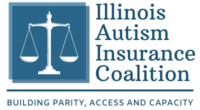Parity & Autism Law
Federal Laws
Mental Health Parity and Addiction Equity Act (MHPAEA) “Parity Act” – Federal Law
Passed in 2008, MHPEA is a federal law that generally prevents group health plans and health insurance issuers that provide mental health or substance use disorder (MH/SUD) benefits from imposing less favorable benefit limitations compared to medical/surgical benefits. MHPEA ended discrimination in mental health & addiction insurance coverage.
The Federal Parity law’s mission is to stop the following from occurring: Additional financial requirements (co-pays and forced to use out-of-network providers), Stricter medical necessity criteria, Burdensome prior authorizations process, and Treatment limitations or fail first treatment options have to be exhausted.
Under Federal Parity Law, there are two parts of the law that now have parity (equal) with each other: surgical (medical) and mental health condition (DSM-5). Autism Spectrum Disorders is listed as a mental health condition in the DSM-5 and is protected under parity law. Links to Federal law –Programs & Initiatives FAQs
Types of Illinois Health Plans that must follow Federal Parity Law – Plan Types and Compliance with MHPEA 2019
Medicaid Federal Mandate: EPSDT. The T stands for Treatment, Yes, ABA!
The Early and Periodic Screening, Diagnostic and Treatment (EPSDT) benefit provides comprehensive and preventive health care services for children under age 21 who are enrolled in Medicaid. EPSDT is key to ensuring that children and adolescents receive appropriate preventive, dental, mental health, and developmental, and specialty services.
EPSDT Services – States are required to provide comprehensive services and furnish all Medicaid coverable, appropriate, and medically necessary services needed to correct and ameliorate health conditions, based on certain federal guidelines. Link Medicaid.gov & EPSDT Information.
Medicaid-Center for Medicare & Medicaid (CMS) Bulletins on Autism Treatments in Medicaid
- Bulletin from CMS: Clarification of Medicaid Coverage of Services to Children with Autism
- CMS: Medicaid and CHIP FAQs: Services to Address Autism
State Laws
Illinois’ New State MH Parity Law (MHP)
Passed in August 2018, Public Act 100-1024, SB 1707 passed in August 2018 with the Illinois legislature amending the state’s MHP law and the Governor signed it into law. The newly passed law updates the state’s original MHP law, SB 1707, with an effective date January 1, 2019. Originally, only 6 mental disorders were covered and autism was not covered. Now, the law is applicable to mental or behavioral disorders listed in the DSM for Mental Disorders or ICD including Autism Spectrum Disorders. Read more
Illinois Autism Mandate
- Children under the age of 21 will receive coverage for the diagnosis and treatment of autism spectrum disorders. There are yearly funding caps for individual grandfathered plans. The inflation-adjusted annual limit (cap) for 2019 is $48,272.19 for individual grandfathered plans. Due to essential health benefits laws under the ACA, there are no caps for group grandfathered plans. Learn more about treatments available under the mandate
- Legislation Language
- Link to Illinois Statue 215, Autism Mandate passed in 2008
(215 ILCS 5/356z.14) - IL Mandate Expanded for other Diagnosis 2009 (2) The Illinois Statue 215 amendment in 2009 added habilitative services for children less than 19 years of age with a congenital, genetic or early acquired disorder, including autism spectrum disorders.
(215 ILCS 5/356z.15)
- Link to Illinois Statue 215, Autism Mandate passed in 2008
- Illinois Department of Insurance – Autism Benefit FAQ
Medical Necessity Rules & Definitions
Unfortunately, our current healthcare system allows each payer, including Medicaid, to define what is or is not medically necessity.
Elements of Medical Necessity Medically necessary generally refers to treatments that:
- ameliorate or manage symptoms
- improve functioning and/or
- prevent regression or deterioration.
- Other considerations:
- utilize evidenced-based interventions or generally medically accepted treatments
- goal is to remediate deficits, signs and symptoms of the condition being treated
- treatment plans specify frequency, intensity and duration of treatment that is considered to be clinically appropriate.
- ABA is an evidenced-based intervention and the generally medically accepted treatment for symptoms of Autism Spectrum Disorders
Plan Types and their definitions of Medical Necessity
- Section 140.485 Healthy Kids Program, Illinois’ Medical Necessity Definition for Medicaid EPSDT Benefit
- Employer-Sponsored Plans & Individual Plans – Review your health plan’s medical necessity definition for autism in the plans manual or handbook.
- AMA Definition of Medical Necessity
LINKS TO LITIGATION FOR ENSURING ACCESS TO TREATMENTS
Lawsuit Claims State Denies Critical Therapy For Kids With Autism
(Hawaii, Education). The suit alleges the departments of Education and Human Services aren’t coordinating to provide legally required services at schools.
The District will provide a Board Certified Behavior Analyst or a Licensed Behavior Analyst (“BCBA/LBA”) to serve as a member of Student’s IEP Team
(Oregon, Location Challenges) and support Student’s special education as follows: (i) assist in interpreting evaluations and special education service needs, (ii) assist in providing ABA, as described and defined in Paragraph B.3., above, (iii) observe and collect behavioral data, (iv) provide consultation and training to District staff regarding the provision of Student’s school~based ABA services, (v) collaborate with Student’s private BCBA/LBA on a weekly basis at a mutually agreeable time, and (vi) supervise the services provided to Student by the District-provided RBAI/RBT …..
Providence Insurance Carrier Loses Autism Case in Federal District Court
(Oregon, Mental Health Parity Law) “The court finds that Providence cannot simultaneously purport to cover autism and yet deny coverage for medically necessary ABA therapy through its Developmental Disability Exclusion consistent with the Oregon Mental Health Parity Act,” wrote Judge Michael Simon.
PARENTS LEAGUE FOR EFFECT. AUTISM v. Jones-Kelley, 2008
(Ohio, Medical Necessity) Plaintiffs provided sufficient evidence that ABA therapy, when recommended by a licensed practitioner of the healing arts, is a medically necessary service which provides the maximum reduction of a mental or physical disability.
CONGRATULATIONS TO MARLA ROOT RECEIVING THE AUTISM SPEAKS 2018 IMPLEMENTATION AWARD FOR HER EFFORTS MONITORING OHIO’S AUTISM MANDATE

